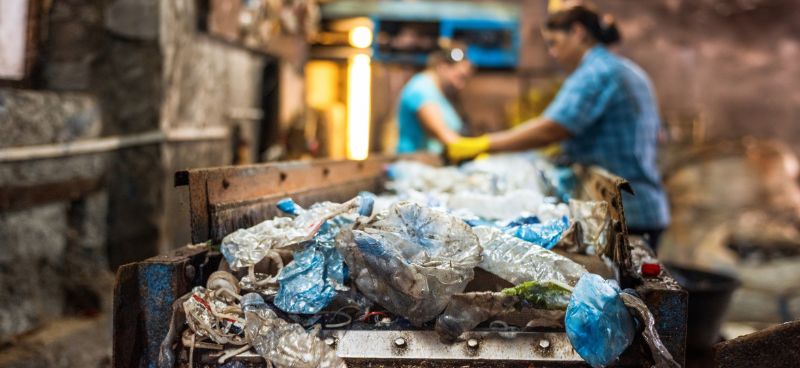
How to Maximize the Use of Plastic Waste: New Technology Effective Even with Sludge
17. July 2025One of the many important initiatives involving the Centre of Polymer Systems is the PolyEnvi21 project: National Competence Centre for Polymer Materials and Technologies for the 21st Century, which encompasses a total of 20 sub-projects focused on the issues of microplastics and the circular economy. The first sub-project, dedicated to technologies for processing waste sludge generated during the mechanical recycling of flexible plastic packaging, has already been successfully completed.
The main goal was to design and validate separation technologies for plastic-containing waste sludge produced during the sorting and washing of plastic waste, and to explore ways to reuse these sludges as secondary materials. This project makes a significant contribution to increasing both the economic and environmental efficiency of the recycling process at sorting facilities.
“Sustainability and the principles of the circular economy represent a necessary framework for how we approach materials, waste, and energy resources. This project demonstrates that even residual materials, such as sludge from plastic recycling, can be given new value,” said Professor Vladimír Sedlařík, principal investigator of the PolyEnvi21 project.
The optimized processing methods take into account the effective management of sludge waste with a significant residual plastic content, thereby further contributing to the sustainability of the entire system. The final sorted materials derived from plastic sludge have high potential for further use, especially in the production of plastic products for technical applications. In addition to the proven technology for processing plastics separated from sorting line sludge, the project also delivered three functional prototypes: a material based on separated plastics from sludge with optimized properties for subsequent manufacturing, a material intended for use in solid alternative fuels, and a material developed for catalytic mineralization. The developed technology and these functional samples represent innovative solutions for reducing the environmental footprint of plastic waste.
The principal investigator was ASIO TECH, spol. s r.o., with co-researchers including the Centre of Polymer Systems, Brno University of Technology, the University of Chemistry and Technology in Prague, Fortemix produkce, s.r.o., and ZODPA, s.r.o.